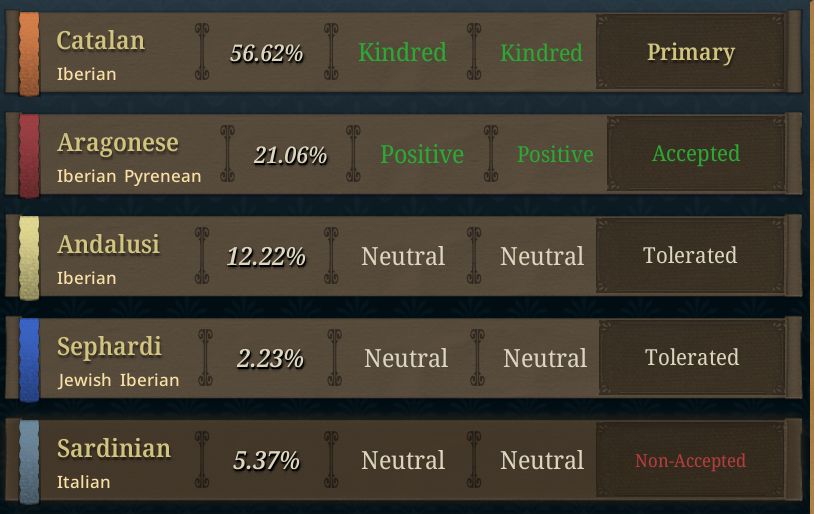Well what we do know is that cultural opinion ties into how well much cultural capacity it will cost to accept that other culture. The higher the opinion of each other, the less it costs to accept that culture. So cultural opinions and acceptance are two separate things. So cultural opinion is probably what the "Sardinian view of Catalan" value represents. But nothing is showing what being Non-accepted represents.
So perhaps pops in a conquered and integrated territory gets slapped with a conquered malus, and then tolerating or accepting them can reduce the conquered malus by a certain amount? Not sure. Dont think its ever been directly shown or described what effect accepting cultures can do.
View attachment 1281584
And yeah, people don't like being conquered due to stuff directly impacting them. Not just "Oh were conquered? I dont like this" You have to oppress them, try to ban practice of their religion, suppress usage of their language, burn down their homes, loot their possessions, steal their food as your army marches through. But generally, a peasant farmer doesnt know or care who is ruling over them. I'm sure many peasants had no clue the Roman empire even fell and got rapidly gobbled up by Germanic tribes. They probably just thought a knew Emperor(s) was in charge. And when they finally found out years later, It was just mild surprise and then they went back to farming and paying taxes. Especially since many of the times conquerors leave in place what ever institutions were there prior. For most peasants, nothing changed. Just another person (you don't even remember the name of) calling themselves king for yet again.
And for nobility. Some would be happy to kneel to their new rulers. Some would despise and resist. Depends of various factors. But its not just a guaranteed resistance.




